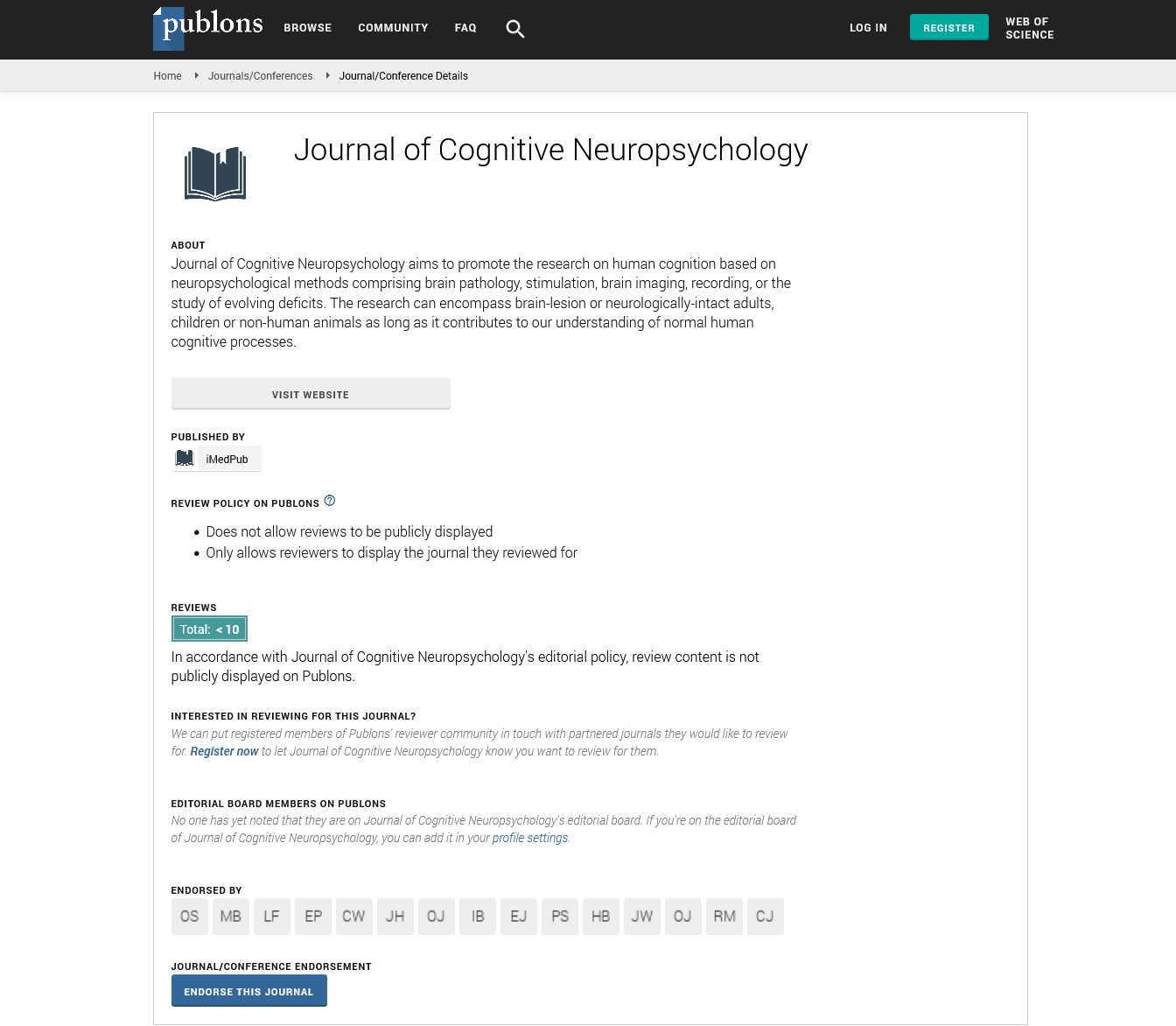Efficacy of task-oriented intervention in the rehabilitation of subacute stroke patients: a systematic review
World Congress on Neurorehabilitation
July 05-06 2021 | Webinar
Jean Piere
King Juan Carlos Universtiy, 28933, Alcorcon, Spain
ScientificTracks Abstracts: J Cog Neu
Abstract
Background: One of the most common symptoms after stroke is upper limb (UL) hemiparesis, which prevents participation in activities of daily living (ADLs) for those affected. Traditionally, neurofacilitative approaches have been used in these cases, although they do not show strong scientific evidence specifically supporting recovery from UL. One of the novel approaches to intervention is the task-oriented approach (TOA). Objectives: To determine the efficacy of TOA rehabilitation of haemiparetic UL in adult patients with stroke (ischaemic or haemorrhagic) in sub-acute phase, assessing its effect on UL function and independence in ADLs. Methods: A systematic review was conducted in June 2021 in different electronic databases, selecting those clinical trials carried out in patients with sub-acute stroke and in which an TOA was used for UL rehabilitation and participation in ADLs. Four randomised clinical trials were included summarising study characteristics, outcome measures, and description of the scientific evidence of their results. Results: Across all studies, improvements in UL functions and ADL participation are found among subjects, but only those in UL are shown to be significant among subjects in the experimental groups. None of the included studies report adverse effects of the intervention or show sustained improvements over time. Discussion and conclusions: TOA combined with other techniques, such as the use of action videos or a hybrid robotic device EMG-triggered functional electrical stimulation, have a positive effect on the rehabilitation of sub-acute stroke patients. Future research is needed to investigate further aspects such as the potential profile of the subject who may benefit of the protocols and the neurophysiological mechanisms underlying the application of this treatment technique. Keywords: stroke, sub-acute, upper limb, activities of daily living, task-oriented intervention.
Google Scholar citation report
Citations : 8
Journal of Cognitive Neuropsychology received 8 citations as per Google Scholar report
Journal of Cognitive Neuropsychology peer review process verified at publons
Abstracted/Indexed in
- Google Scholar
- Publons
- MIAR
Open Access Journals
- Aquaculture & Veterinary Science
- Chemistry & Chemical Sciences
- Clinical Sciences
- Engineering
- General Science
- Genetics & Molecular Biology
- Health Care & Nursing
- Immunology & Microbiology
- Materials Science
- Mathematics & Physics
- Medical Sciences
- Neurology & Psychiatry
- Oncology & Cancer Science
- Pharmaceutical Sciences
